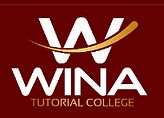Fully trained staff
Years of experience
Proven track record

WINA equal opportunities statement
“Everyone has a part to play in ensuring we achieve equality of opportunity. We believe that a positive attitude towards equality and diversity is right for our people, our clients and our business suppliers. This means that we must encourage all our people to welcome diversity and respect each person’s individuality”

"Have been using this service since year 7 as a way to help boost my grades at school, The team at this centre were able to get me all 8s and 9s in my sciences for GCSE and A* A A (Maths, Chemistry and Physics in respective order) in my A levels when originally predicted AAB. High-quality teaching, just make sure you are vocal about which areas you need help on. Otherwise, this is one of the better tuition services."

Access arrangements
Access arrangements allow candidates/learners with special educational needs, disabilities or temporary injuries to access the assessment without changing the demands of the assessment. For example, readers, scribes and Braille question papers. In this way Awarding Bodies will comply with the duty of the Equality Act 2010 to make ‘reasonable adjustments’.
Access arrangements are approved before an examination or assessment and they allow candidates/learners with special educational needs, disabilities or temporary injuries to access the assessment.
Special requirements can include:
-
Known and long-standing learning difficulties
-
Physical disabilities, permanent or temporary
-
Sensory impairment
-
Candidates whose first language is not English, Irish or Welsh
-
Candidates who have difficulties at, or near, the time of assessment that may have affected their performance in the assessment.
Reasonable Adjustments
Skills & Experience
The Equality Act 2010 requires an awarding body to make reasonable adjustments where a disabled person would be at a substantial disadvantage in undertaking an assessment. A reasonable adjustment for a particular person may be unique to that individual and may not be included in the list of available access arrangements.
How reasonable the adjustment is will depend on a number of factors including the needs of the disabled candidate/learner. An adjustment may not be considered reasonable if it involves unreasonable costs, timeframes or affects the security or integrity of the assessment.
There is no duty on the awarding bodies to make any adjustment to the assessment objectives being tested in an assessment.


Core evidence required
Private Candidates for External assessment/exams will be required to submit the following evidence of need from their schools learning centres or SENCOs:
-
Confirmation that the required access arrangement is the candidate’s normal way of working;
-
Provide evidence that the candidate has persistent and significant difficulties, and how these substantially impact on teaching and learning.
Evidence of need should be supported by:
-
A letter/report from CAMHS, a HCPC registered psychologist, a medical consultant, a psychiatrist, a Speech and Language Therapist (SaLT); or
-
A letter/report from the Local Authority Specialist Service, Local Authority Sensory Impairment Service or Occupational Health Service†; or
-
A current EHCP or a Statement of special educational needs (Northern Ireland) or an Individual Development Plan (Wales), which confirms the candidate’s learning difficulty, medical condition, physical disability, sensory or multi- sensory impairment.
-
A fully completed Form 8 with an assessment (Part 2 of Form 8) carried out no earlier than the start of Year 9 by an assessor confirming a learning difficulty relating to secondary / further education (Form 8 must be supplemented by a detailed picture of need.)


